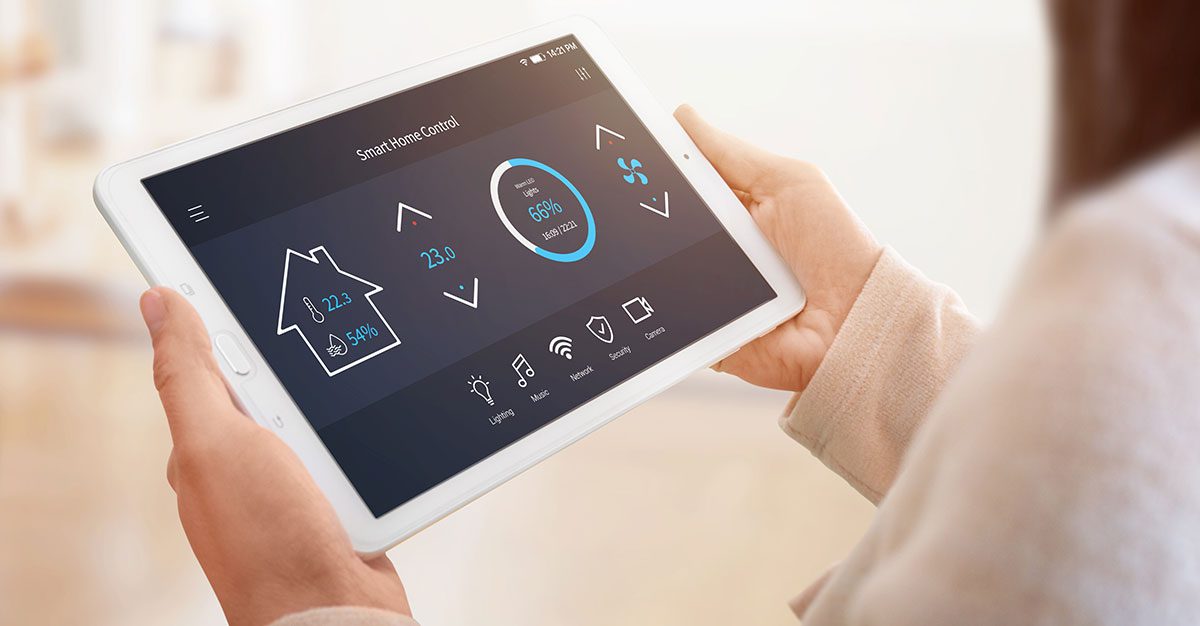As homes and buildings become increasingly connected, innovative HVAC systems are emerging as a cornerstone of modern living. These advanced heating, ventilation, and air conditioning solutions not only enhance indoor comfort but also significantly improve energy efficiency.
The integration of innovative technologies in HVAC systems is paving the way for a more sustainable, cost-effective, and responsive approach to climate control in residential and commercial settings.
The Rise of Smart HVAC Systems
In recent years, HVAC technology has undergone a significant transformation. The convergence of IoT (Internet of Things), machine learning, and mobile connectivity has enabled HVAC systems to become more intelligent and adaptable than ever before.
- Smart thermostats learn user preferences and habits to optimize heating and cooling schedules
- Mobile apps allow remote control and real-time system monitoring
- Predictive maintenance alerts reduce unexpected breakdowns and prolong equipment lifespan
- Integration with renewable energy sources maximizes energy use efficiency
These innovations have revolutionized the operation of HVAC systems, but to fully benefit from them, you need expert guidance and professional installation. That’s where trusted professionals like HVAC AMS come in, the best HVAC company in Paramus, NJ, offering reliable service tailored to today’s advanced energy and comfort needs.
Key Benefits of Smart HVAC Technology
Innovative HVAC solutions offer a range of benefits that go beyond temperature control. They provide enhanced convenience, promote environmental sustainability, and contribute to lower utility bills for homeowners and businesses alike.
Personalized Climate Control
Innovative HVAC systems can adapt to individual preferences by learning behavior patterns and adjusting settings accordingly. Whether you’re home, away, or asleep, these systems ensure optimal comfort while minimizing energy waste.
Energy Savings and Cost Efficiency
By optimizing usage patterns and reducing energy waste, innovative HVAC systems contribute to significant cost savings over time. Real-time energy usage data empowers users to the make informed decisions and identify inefficiencies.
Improved Indoor Air Quality
Advanced air quality sensors can detect pollutants, humidity levels, and CO2 concentrations. The system can then adjust ventilation or activate filtration systems to maintain the healthy indoor environment.
Remote Accessibility and Automation
Users can control their HVAC systems from anywhere using smartphones or tablets. This convenience allows for adjustments
Predictive Maintenance and Reliability
Through continuous system monitoring or data analysis, innovative HVAC systems can predict potential issues before the escalate. This proactive approach to maintenance reduces downtime and extends the equipment’s lifespan.
Challenges in Adopting Smart HVAC Technology
While innovative HVAC systems offer substantial advantages, they also present unique challenges that homeowners and businesses must take into account. These obstacles can affect adoption rates, user satisfaction, and long-term performance.
Upfront Investment and Installation Complexity
Innovative HVAC systems often require a higher initial investment compared to traditional systems. The cost of new components, system upgrades,
Additionally, complex installations may demand technical expertise that not all contractors possess.
Compatibility and Integration Issues
Integrating innovative HVAC systems with existing infrastructure or other smart devices can sometimes result in the compatibility issues. Users may experience limitations with legacy systems or face software and hardware inconsistencies that affect performance or control.
Data Privacy and Security Concerns
With increased connectivity comes the risk of the data breaches and unauthorized access. Innovative HVAC systems collect and transmit personal usage data, which could be vulnerable if not properly encrypted and protected. Homeowners and businesses must ensure they are working with trusted providers and secure technologies.
Embracing the Future of HVAC
The shift toward smart HVAC is not just a technological trend but a response to growing demands for energy efficiency and user-centric comfort. Companies that specialize in HVAC services, such as hvacams.co, are playing a crucial role in facilitating this transition by offering modern solutions tailored to evolving consumer needs.
- Delivering intelligent HVAC installations that improve energy performance
- Supporting system optimization through connected monitoring tools
- Incorporating advanced components for better air quality and comfort
- Enhancing sustainability with eco-friendly configurations
- Aligning with smart home ecosystems for seamless control
Conclusion
The advent of innovative HVAC technology is revolutionizing the way we experience indoor environments. From intelligent temperature control to proactive maintenance and enhanced energy savings, these systems are making a measurable difference in both comfort and sustainability.
As this technology continues to evolve, service providers help ensure that homes and businesses can adopt efficient, intelligent, and future-ready climate control systems.































